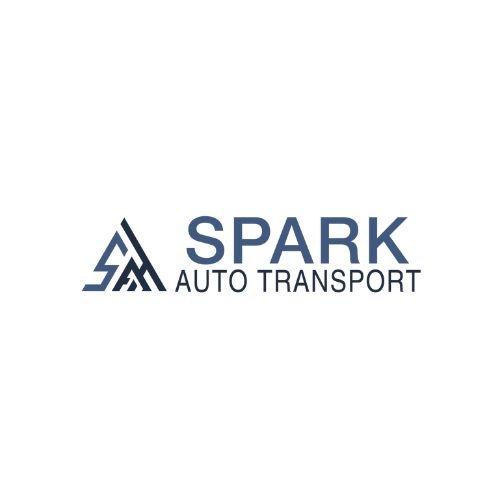Understanding insurance and liability considerations when outsourcing commercial vehicle transport services to experts

Outsourcing business vehicle transportation services calls for more than just letting someone pick up your vehicle keys and hoping they reach their destination without incident. Business owners who want to protect their assets and keep regulatory compliance low risk should completely comprehend insurance coverage and liability consequences. Professionals in vehicle transportation must each know their particular obligations. This information protects your company’s interests and promotes responsibility even during unanticipated circumstances. An analysis of essential factors drives coordinated risk management and the maintenance of security operations during the outsourcing process.
The importance of verifying insurance coverage in outsourced transport agreements
One of the first things outsourcing companies of vehicle transportation have to do is check the insurance policies of their suppliers. Through appropriate insurance coverage from your shipping operator, your investment gets protection from transit-related damage, theft, and accidents. The service provider must keep a policy of insurance with full liability protection, especially for services involving commercial vehicle transportation. To lower financial risks, the coverage covers cargo losses, third-party damages, and vehicle crashes.
One absolutely needs a careful review of policy constraints. When insurance does not cover a business’s needs, the business may suffer financially as a result. Requiring insurance documentation and its validation with brokers or providers helps build confidence and clarity between the engaged parties. Verification that the insurance of the provider corresponds with your contract requirements helps to avoid future conflicts. Insurance conditions should clearly indicate which party covers financial damages resulting from vehicle damage and delays linked to negligence.
Clarifying liability responsibilities between the business and transport experts
Liability for commercial vehicle transportation concerns several people with various interests. The exact distribution of responsibility for various tasks calls for thorough negotiations mixed with well-defined contractual language. Vehicles transferred and under custody still belong to the transportation company. The corporation’s outsourcing of the service must specify particular liability rules and restrictions.
The contract ought to include a thorough discussion of liability for vehicle damage originating from mechanical breakdown, driver mistakes, or environmental hazards. Liability insurance covering repair expenses and claims resulting from operator negligence is required for a supplier of transportation services. Any damage resulting before or after delivery still belongs to the outsourcing company. Establishing these limits ahead of time helps avoid uncertainty and shields both sides from protracted legal conflicts.
Comprehensive assessments of indemnity provisions allowing the transfer of obligation between parties depending on specific criteria are absolutely vital. Indemnification clauses should guarantee fair allocation of risk among participants, preserve balanced obligations, and guarantee justice. Obtaining professional legal advice throughout the development or review of contracts ensures robust protection policies and clarifies the obligations related to joint liability.
Ensuring regulatory compliance and risk management in vehicle transport outsourcing
Beyond insurance and liability, regulatory compliance plays a pivotal role in outsourcing commercial vehicle transport services. Transportation businesses have to abide by federal and state rules defining vehicle movement activities in line with safety criteria and driver requirements. By means of your transportation provider, meeting regulatory criteria helps shield your company from operational interruptions and financial fines.
By means of proactive efforts to control possible hazards, risk management techniques interact with regulatory compliance. Regular vehicle inspections, driver training programs, and route risk assessments taken together help to lower the possibility of transportation events occurring. Tracking systems, combined with real-time communication channels, improve openness and enable quick emergency reactions.
In transportation, business operations call for the application of thorough documentation within accepted operational guidelines. Important paperwork for insurance claims and liability investigations is incident logs coupled with condition reports and bills of lading. Businesses that give compliance and risk management first priority both preserve their financial situation and keep their credibility in ethical outsourcing practices.
Maximizing benefits while safeguarding investments through informed outsourcing decisions
Companies that know insurance and liability specifics are better able to decide on car transportation outsourcing. Choosing a transportation partner with strong insurance and clear liability policies helps businesses eliminate uncertainty and foster trust inside their relationship. Having fully protected assets during transit provides businesses with peace of mind. Companies have to set up time to do due diligence and negotiate agreements to fairly divide risks and obligations.
The suggested approach fosters cooperation between the outsourcing company and transportation experts, producing joint responsibility and consistent service delivery. Understanding these factors allows companies to improve their financial management by means of cost optimization since this knowledge helps minimize unanticipated financial losses resulting from damage or legal issues. While simplifying incident recovery protocols, the technology enhances the claim processing performance. Comprehensive attention to liability and insurance guarantees safe and effective operations of commercial vehicle transportation.
Conclusion: Navigating outsourcing complexities with professional guidance and trusted partners
Transport of commercial vehicles creates complicated insurance and liability issues that need both strategic planning and careful attention to detail. Choosing partners that know about transportation hazards and insurance specifics offers total security for your priceless assets. A reputable service provider like Spark Auto Transport exemplifies the expertise and reliability essential for managing these concerns effectively. The success of business outsourcing results from the provider’s dedication to open insurance coverage, fully defined liability terms, and consistent regulatory compliance. Businesses that prioritize these aspects safeguard their assets and reap the benefits of professional vehicle transportation, which enhances operational efficiency and instills confidence.
